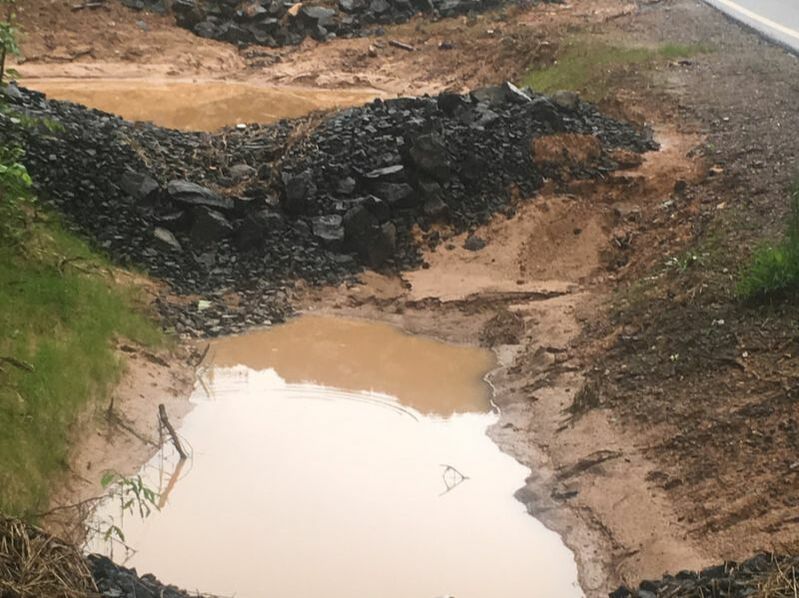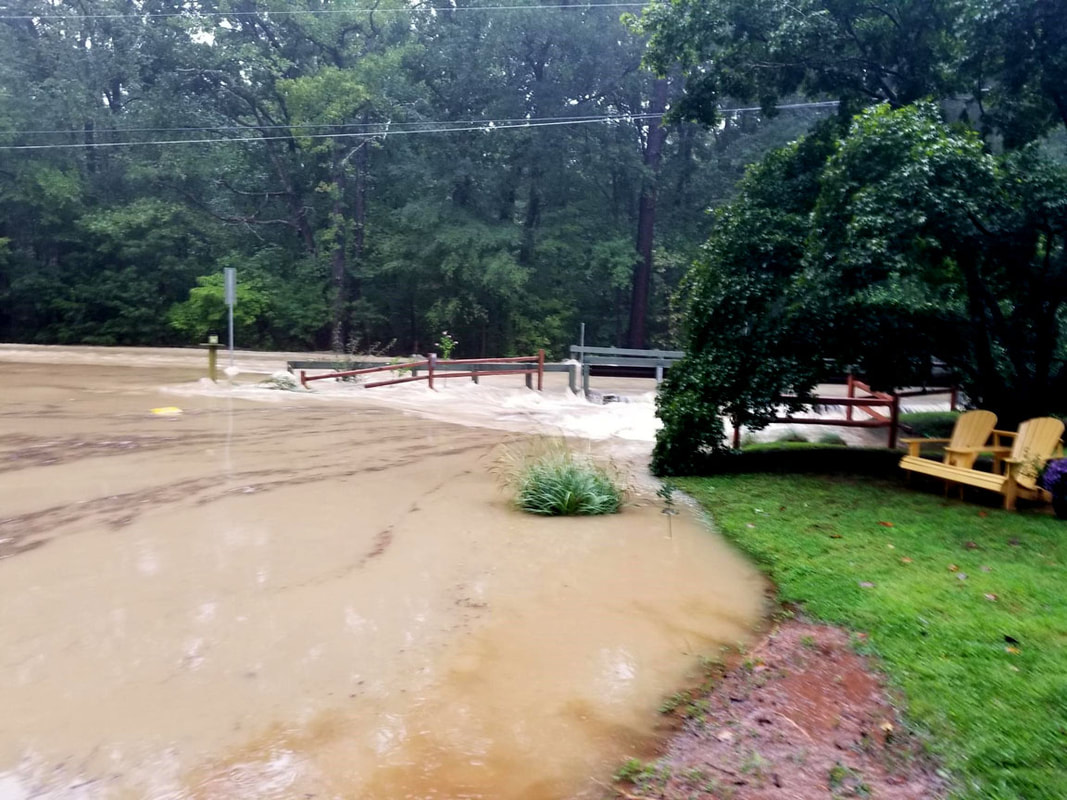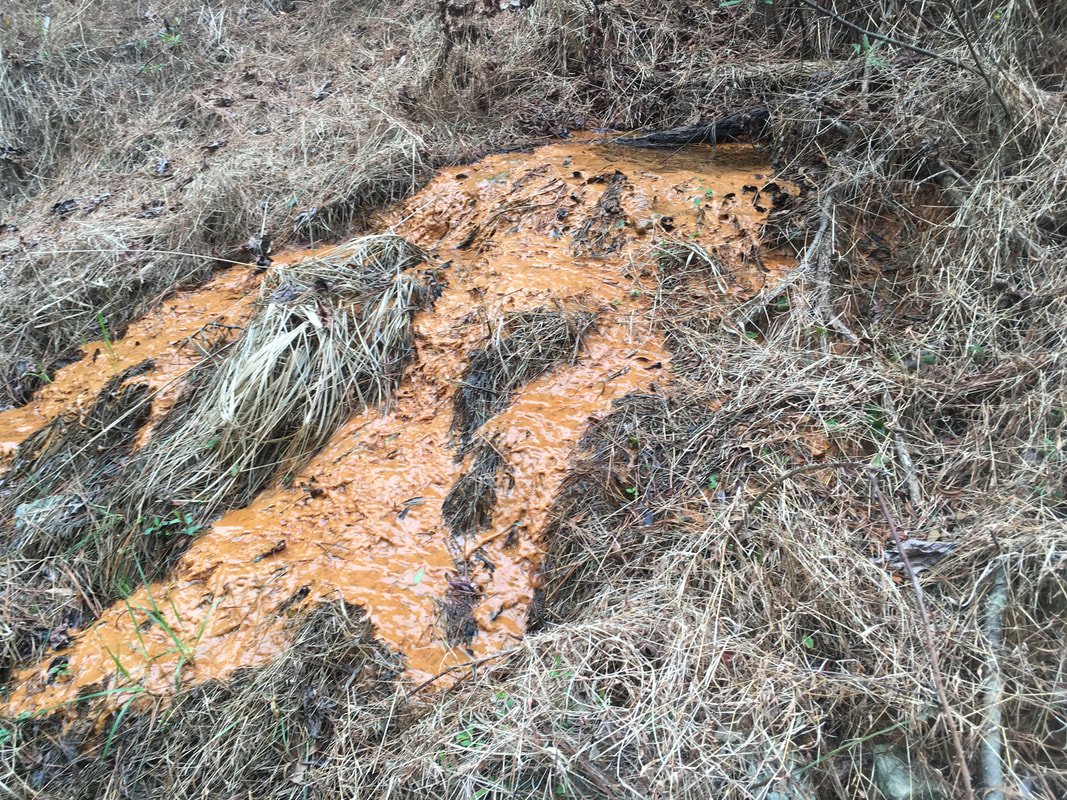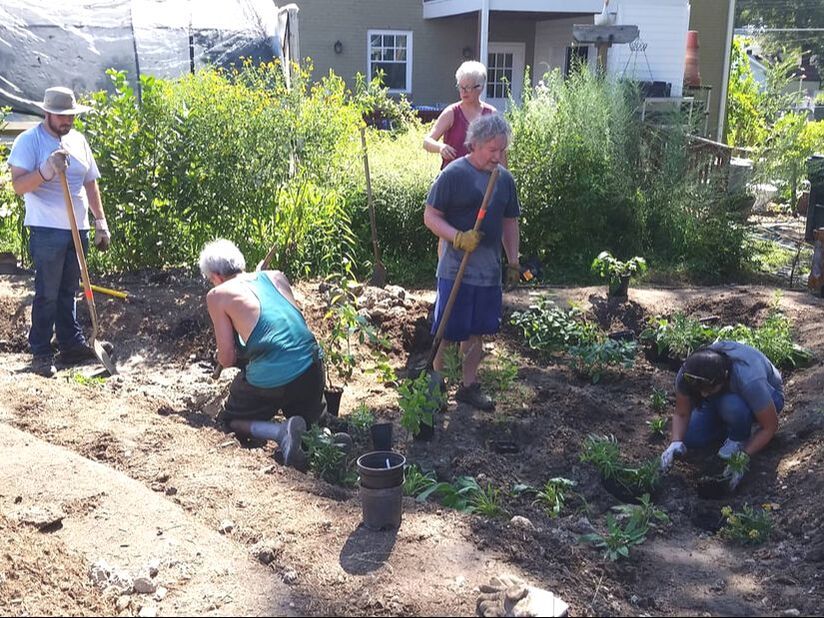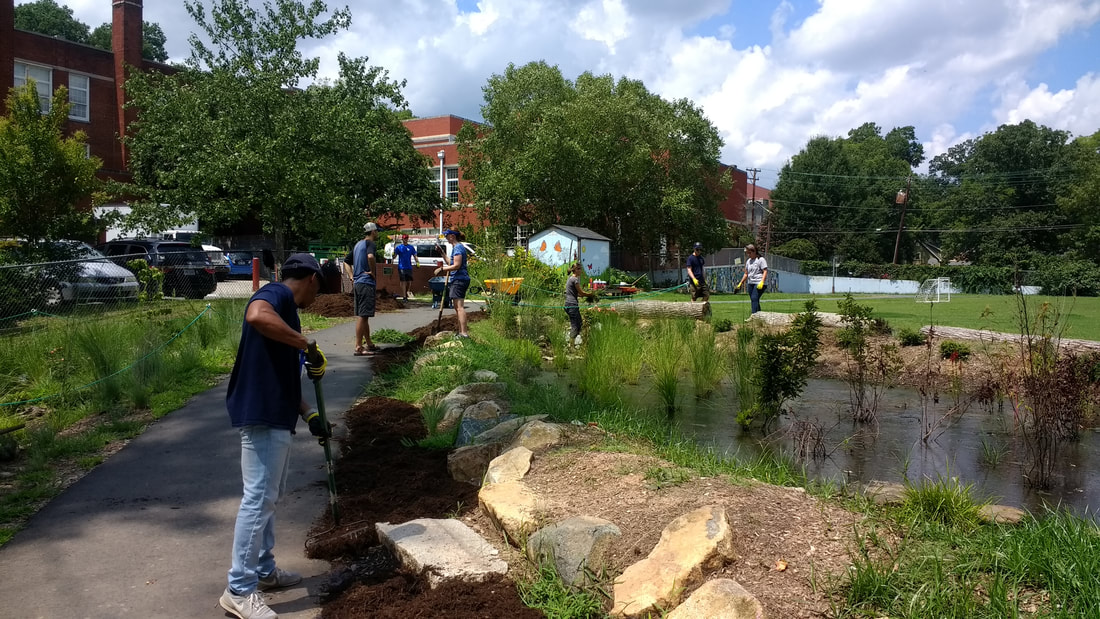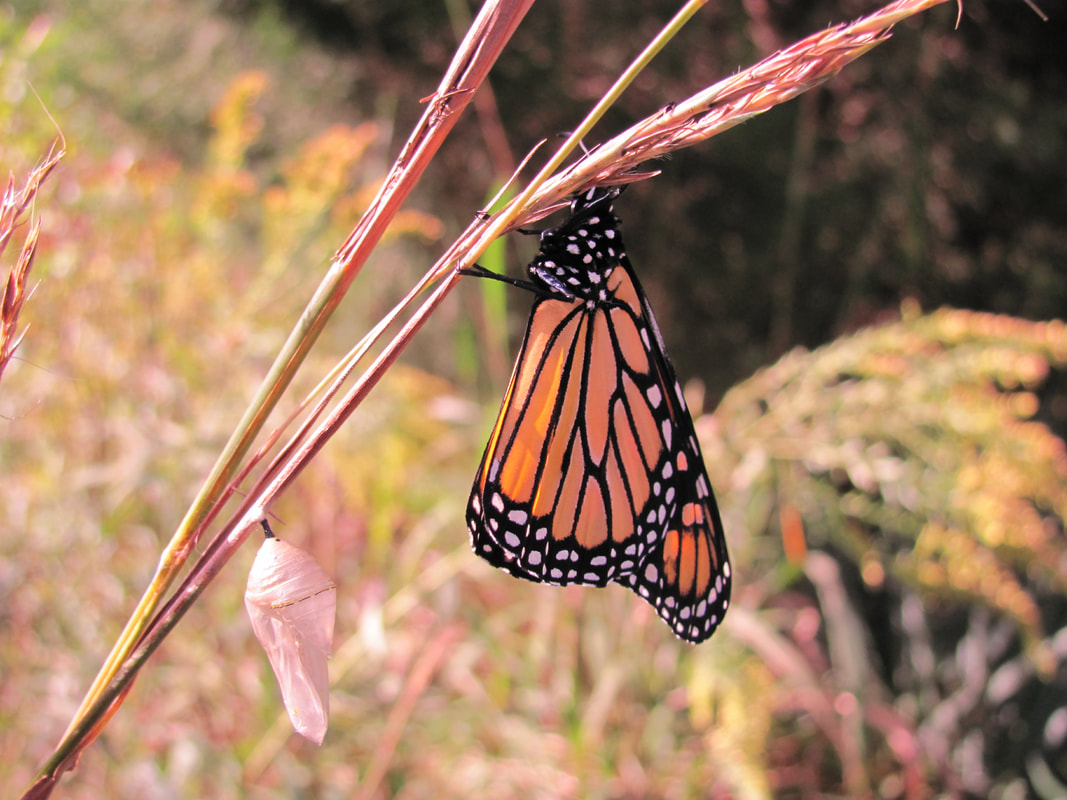In the natural water cycle, precipitation either evaporates or soaks into the ground, filtering through rocks, soil, and roots. The urban water cycle is different. Impervious surfaces like roofs, streets, and parking lots—common in the densely populated Ellerbe Creek Watershed—cannot filter water into the ground. The result is “run-off,” rainwater mixed with surface pollutants that end up in the creek, contaminating the clean water. During storms, rainwater moves faster across impervious surfaces, dumping even more water into the creek in a shorter span of time, which causes floods and destroys wildlife habitat. So, how do we address the problem of stormwater pollution?
Stormwater runoff can mean flooded playgrounds, damaged trails, and muddy fields
|
Green Infrastructure
Our primary restoration efforts focus on ways to minimize and filter stormwater runoff within the watershed. The Ellerbe Creek Watershed Partnership identifies and advocates for a set of nature-based practices aimed at absorbing and filtering polluted stormwater and slowly releasing clean water into the creek. We advocate for green infrastructure within our watershed, including rain gardens, green roofs, and permeable pavement. We encourage Creek Smart® practices in homes, schools, parks, and businesses and teach hands-on workshops to help property owners enact these sustainable practices on their own. Creek Restoration Another way to address the problem of stormwater pollution is to restore the natural flow and filtering functions of the creek. For example, in 2012, ECWA worked with the City of Durham to restore the natural flow of the creek through Hillandale Golf Course and 17-Acre Wood Preserve. Today, we are working with the City of Durham to restore the banks of the Strayhorn Springs branch, a tributary of the Pearl Mill branch of Ellerbe Creek. |
North Street neighbors install a rain garden.
|
|
ECWA’s Pearl Mill Preserve is a part of downtown Durham’s future nature park. The heart of the nature park is the South Ellerbe Creek Wetland Project, a nine-acre wetland that the City of Durham will build on the former Duke Diet and Fitness Center property. The idea of removing the building and creating a wetland originated with Jessie Allen, a graduate of Duke’s Nicholas School for the Environment and a former ECWA board member.
|
